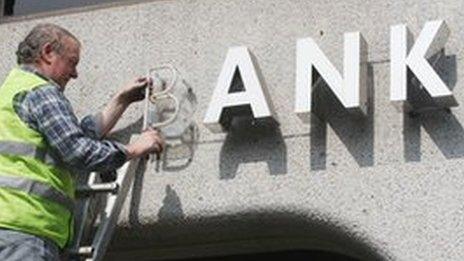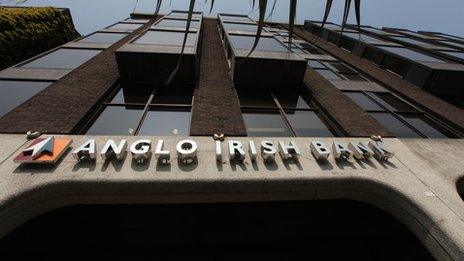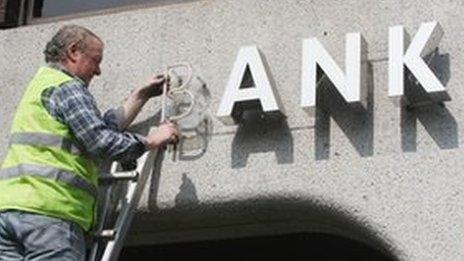Republic of Ireland to exit bailout in December, says PM
- Published
Enda Kenny: "At last, the era of the bailout will be no more"
The Republic of Ireland is on track to exit its international bailout programme by December, Prime Minister Enda Kenny says.
He told the Fine Gael party conference in Limerick that although "fragile times" lay ahead "the economic emergency will be over".
The 85bn euro (£73bn) bailout was forced on the country after its biggest banks collapsed in 2010.
Ireland sought help after a property crash left its banks under-capitalised.
"Tonight I can confirm that Ireland is on track to exit the EU/IMF bailout on December 15. And we won't go back," said Mr Kenny.
"It won't mean that our financial troubles are over. Yes, there are still fragile times ahead. There's still a long way to go. But at last, the era of the bailout will be no more. The economic emergency will be over.
Addressing those most affected by the years of austerity, the Taoiseach (prime minister) said their "huge sacrifice" was paying off.
He cautioned that the national budget due to be unveiled on Tuesday would be "tough", with another 2.5bn euros (£2bn) in tax rises and spending cuts.
But he said it would leave Ireland with a 4.8% deficit next year, well ahead of the required 5.1% target.
He added that the government would publish a new medium term economic strategy by the end of this year.
If Ireland does exit the scheme by December, it will be the first of the four countries bailed out by the eurozone to wean itself off emergency aid.
The eurozone has also bailed out Portugal, Cyprus and Greece.
In July, ratings agency Standard & Poor's upgraded its credit outlook for the Republic of Ireland from "stable" to "positive", arguing that the country's debts were falling faster than expected.
In April, eurozone finance ministers rewarded the country's efforts by giving Ireland more time to repay its bailout loans.
- Published12 July 2013

- Published7 July 2013

- Published13 December 2022
- Published27 June 2013
